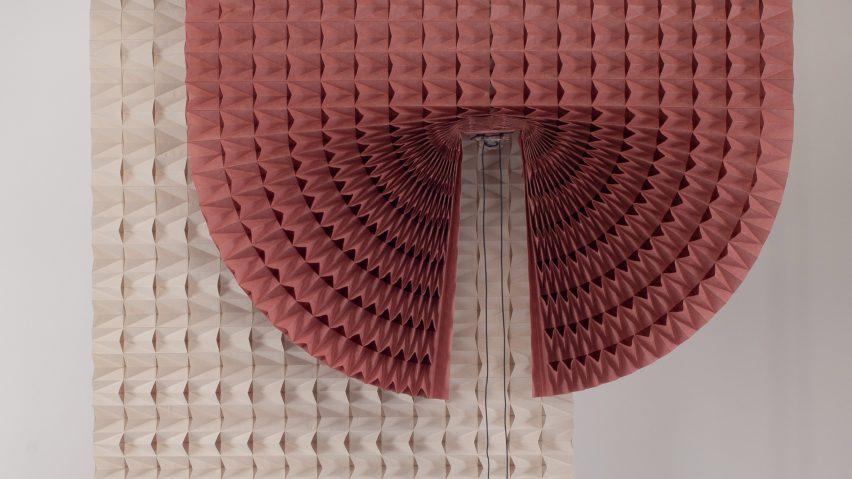Thai designer Natchar Sawatdichai's collection of Qualified paper blinds are designed to offer a sustainable alternative to those made from environmentally damaging plastics.
Sawatdichai, who graduated from London's Kingston University earlier this year with a masters degree in Product and Furniture Design, created the adjustable blinds as the majority of blinds are made from "over-qualified" materials.
"By overqualified I mean providing something that consumers didn't ask for," she explained to Dezeen. "At the same time, these other materials also use excessive energy to produce and dispose of."
"Consumer behaviour has created a 'throwaway society', which shortens the average lifespan of a product," she continued.
Sawatdichai argues that paper is a sustainable, affordable and readily available alternative to the plastics that are currently used to produce blinds and other home decoration products.
"Paper is the most versatile material," she stated. "It's available in many formats, it supports experimentation and mass production, while also providing the widest possible range of end-of-life options."
Made from recycled paper, or paper sourced from responsible resources, Sawatdichai's Qualified blinds are cut and creased by machine, and folded and glued by hand. It takes approximately six to seven hours to make one blind.
"The actual paper I used for the prototypes was newsprint paper and Hanji paper (traditional Korean handmade paper) because it provides the range of colours with the right thickness," she explained.
The first collection of Qualified blinds, called Through the Day, is available in four colours – warm white, royal blue, sand yellow and dusk pink. The blinds are designed to be easily replaceable.
"They can either be treated as a seasonal decoration or a year lifespan object. They can be replaced between 1 - 12 months," she said.
The paper blinds slide in and out of a compact bracket while the pulley cord is placed at the centre so that the width of the blind can be adjusted by cutting the sides with a pair of scissors.
"I think the reason why paper is often overlooked and not commonly used in home decoration is because of its low-value appearance and doubts of its durability," Sawatdichai said.
"In some way, we might not have found the appropriate applications yet, which can enhance its value and change the belief about this material."
Other product designers who have experimented with paper include Belgian designer Charlotte Jonckheer, who created two side tables with stone tops supported by curved recycled paper and stone dust legs, and Brooklyn artist Thomas Barger, who made a series of furniture pieces made form paper pulp.

